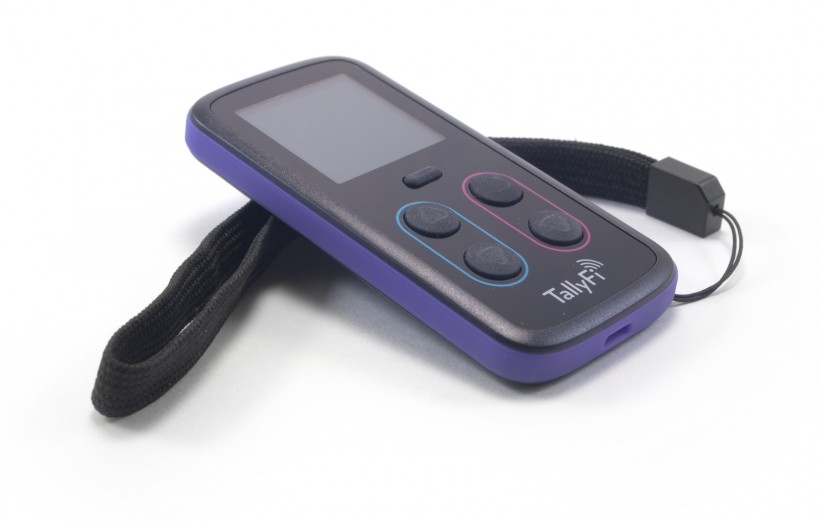Tallyfi, one of the four companies recently admitted to Communitech’s Rev accelerator, has pioneered the 21st Century equivalent of the bouncer’s counter.
The Kitchener-based company is dedicated to helping bar staffs keep track of traffic in their establishment and to analyze data that can increase sales and reduce costs.
“It’s primarily for counting people but on top of that our real value is to teach our customers how valuable that data is to them,” said Co-Founder Ryan Walker in an interview last week, shortly after the team was accepted into Rev.
Walker and his co-founders Gil Pinheiro and Don McKenzie – who met each other when they all worked at BlackBerry -- launched the company about a year ago. They funded it themselves and strove to produce a piece of hardware that would meet the needs of bouncers and doormen.
Rev Welcome Four Companies to Cohort 2
As they researched the matter, they learned that their main competition is an old-fashion handheld counter, which has serious limitations. There’s no connectivity, so if a bar has more than one entrance there’s no way to accurately know how many people are in the place. What’s more, counters only add UP, so the bouncers need a second counter to tally the people exiting and subtract one from the other.
They also learned that bouncers don’t like touch screens, which are difficult to use in cold climates and can lead to mistake.
Their solution is a handheld wireless device that – in the finest BlackBerry tradition – has big mechanical push buttons. It counts men and women both entering and leaving the establishment. A bouncer can use it while his hands are in his pocket, or with gloves on. Each device shows how many people are in the establishment.
“Where it really gets interesting is what we’re able to do with the data,” said Walker. “The first part is the real-time information. … Most value is looking at past data and comparing it week-to-week or month-to-month. That’s where we start to see the interesting stuff.”
The real time information is interesting because an owner doesn’t even have to be at the club to view the traffic. He or she just has to be somewhere with an internet connection. If it’s dead, they can close early and save money.
The data over time is useful because owners can tell when the heavy period are, and compare the traffic with drink sales to assess whether all clients are being served properly.
The three co-founders, who have been working with the University of Waterloo’s Velocity accelerator, have been selling the product in the Kitchener-Waterloo area, and have about 10 clients. Now they want to push it out to the North American market, and that’s where Rev comes in.
The program is designed to accelerate sales for companies with traction, and Tallyfi is putting together a strategy to sell its device to bar owners they can’t drive to. Walker said one thing they want to learn through the program is whether they will need a direct sales force or can sell the devices online or by the phone.
He’s pleased that the mentors at Rev are focused on these sorts of questions rather than on raising capital.
“They’re not about pushing for funding,” he said. “They’re about helping us to get where we want to go and do it through our own sales. That’s what we like about it.”










